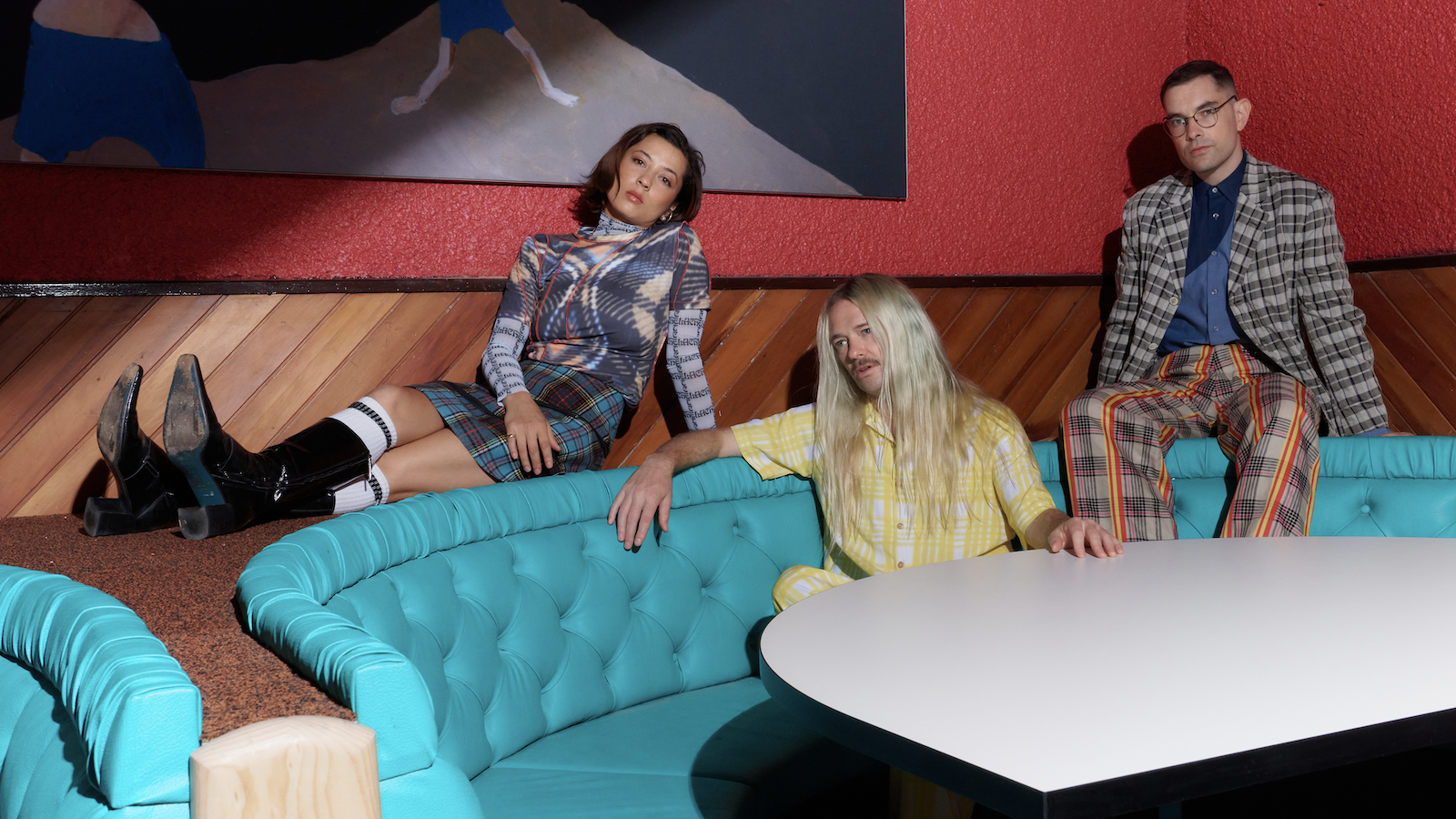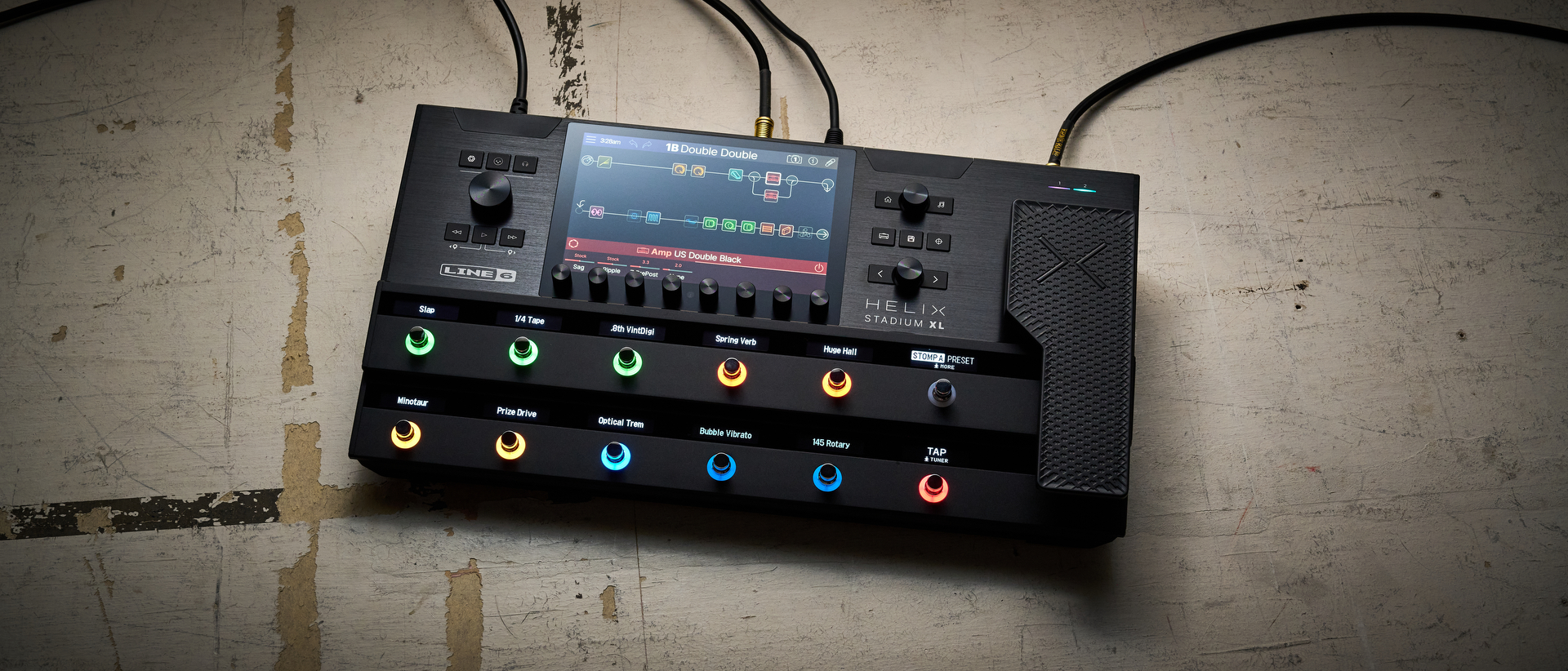Children Collide’s Johnny Mackay: “We were using old, shitty, tiny Fender amps”
After nine years (that felt more like 90), the psych-rock powerhouse have finally minted their fourth album – a furiously fun, rivetingly raucous affair

Though nine years have passed between drinks, Children Collide sound just as punchy, fun, and authentic as they did in their early days. After making waves with their 2012 record, Monument, the band split off explored other avenues; for ringleader Johnny Mackay, that meant shipping himself off to States and starting out from scratch, playing dives to bar staff and opening back‑of‑the‑field festival stages all over again – this time with a new band called Fascinator.
Mackay loved the experience, but at a certain point in his overseas adventures, he realised the ideas piling up were more suited to Children Collide than anything else. So he reconvened with founding drummer Ryan Caesar, recruited new bassist Chelsea Wheatley, and got the wheels rolling once more. Less than a year after the band’s new form was galvanised, they minted what might just be their best record yet: the sharp and spry, scorching hot Time Itself.
We sat down with Mackay to vibe on how the album’s looseness came from the authenticity of the attitude they approached it with, and why old‑school gear was essential in bringing it all together.
Was it always the plan to do that run of comeback shows in 2019, then jump straight into the studio and slam out a record?
The album was actually recorded at the end of 2019 – August, September, around then. The idea started forming towards the end of 2018 – Ryan and I had been talking about it for a few years, throwing the idea around. Jodie, our manager, was like, “You should do that, I’ll get behind it.” Then we started making plans. Ryan came up to Sydney when I was there, and we started writing. Then we ended up in upstate New York doing pre-production, then went to Queens to make the record, and now here we are. It wasn’t really planned out, either – that’s just how it happened. I don’t think we’re smart enough to sit down and be like, “This is the plan and these are the songs and this is how it’s going to be popular.”
What was that experience like, recording over in the States?
I’d been living there since 2012. I was with a friend of mine that I’d already done some recordings with – he helped me out with a bit of stuff on the Fascinator record, then I made another record with him that I haven’t put out yet. So it was familiar for me, in a way – but then bringing Ryan in and doing this whole Children Collide thing, it was something else entirely. Because this band was like my real baptism into music, so bringing that to this whole other world I’d built in New York… It was actually really nice to bring it all together, and it’s amazing how it all fit in together so well.
Did it feel a full-circle moment for you, bringing your old life into your new life?
Yeah, because what’s weird is that I moved there thinking Children Collide would just keep going. It wasn’t like, “This band’s over, I’m leaving!” It was two years into living there that I was like, “Oh, I think the band’s over” – it became apparent that it was over, at least. But it didn’t feel over to me, because I still had the songs that we’d written, or that I’d written, that hadn’t made it onto a record. And I’d been writing in that two-year period as well.
So when Ryan started coming over, we’d obviously been estranged, but we made friends again in New York – he brought his band Pearls over, and we were hanging out and being mates again.
All the latest guitar news, interviews, lessons, reviews, deals and more, direct to your inbox!
How has the creative dynamic in Children Collide grown over the nine years since Monument came out?
Well, Heath is out for this one – we’ve got our friend Chelsea playing bass. He gave us his blessing. He’s busy on the Central Coast running a store now. But the dynamic is amazing, actually. I think for Ryan to go away and do his own thing and front a band like Pearls – a band that’s arguably had more success than Children Collide, anyway – and then me doing Fascinator as well, that all played into it.
I definitely had less success with Fascinator than I did with Children Collide. I’ve spent plenty of shows playing to two people with that band – and loving it. I think both of us brought some newfound humility to [Children Collide], and with that comes creativity. It’s all about making what you love. There’s no weird reason behind any creative decision other than, “Oh, we like this song. We like this part and we want to make a song like this, and we want to have this feeling on stage.”
So heading into this new album, was there an MO, or was it just a case of racking up spontaneous ideas over time?
A bit of both. I think we’ve never really been good at planning a record out to the T. We weren’t thinking about making an album for 2020, or what was going on around us in the music scene. I think one thing that could count as an MO was us asking: “How did the band feel at the start? What was it about that energy that we loved?” We tried to bring that feel to it. It was this raw, kind of rocky unpredictability and spontaneity, that I think we lost a little bit once things started to pick up for us. We started playing with a backing track towards the end – and I think that was cool to experiment with, but it’s not what we are. We’re a three-piece band that sometimes f***s up and makes things up on the spot.
What kind of guitars were you jamming out on in the studio for this record?
I do remember using a lot of ‘60s Jags and stuff like that. I own a ’63 Jag that I used a bunch on the album. There’s recording secrets I’m not supposed to tell, but look, this is a guitar magazine, so I’ll tell you. Here’s the secret: we use the acoustic guitar to do a lot of the heavy distortion. I think a lot of bands like The Breeders use that technique. We used that a bit, and that really made things sound great.
I think the other thing was that we used a lot of older gear. I think some of the bands that have that ‘90s thing going on right now, they’ll use gear from the ‘90s onwards – but I don’t think that’s what ‘90s bands had to use. They had gear from before that. So we tried to make a record the way a lot of bands from that era would’ve done it. We weren’t using Trace Elliots or anything, we were using old, shitty, tiny Fender amps. Tight lows, one amp…
What is it you find so alluring about old-school tech, as opposed to emulating classic sounds by virtue of technology?
I’m not against that style of production. I think it’s all about your ear. I think it’s all about whether you think it sounds good. I use a pad in Fascinator, and I love it. I used to use that same pad in Children Collide. The idea with this record, though, was thinking: “How do we feel like those bands we love from the ‘90s? How do we make it feel like Sonic Youth and Fugazi and The Jesus Lizard?” We were thinking about where they got their sound from and who they were listening to.
I think it would’ve been that late ‘60s and early ‘70s kind of rock – early Sabbath, early Stooges, when music was still... Is it psychedelic? We don’t even know what punk is. But we were thinking about that era of music. I still think you can make an amazing sound with a shitty digital plugin or whatever, as long as you like it. I’m not a purist – I don’t thing we have to record on tape and do all of that kind of stuff; but on this record, we did.

Ellie Robinson is an Australian writer, editor and dog enthusiast with a keen ear for pop-rock and a keen tongue for actual Pop Rocks. Her bylines include music rag staples like NME, BLUNT, Mixdown and, of course, Australian Guitar (where she also serves as Editor-at-Large), but also less expected fare like TV Soap and Snowboarding Australia. Her go-to guitar is a Fender Player Tele, which, controversially, she only picked up after she'd joined the team at Australian Guitar. Before then, Ellie was a keyboardist – thankfully, the AG crew helped her see the light…
